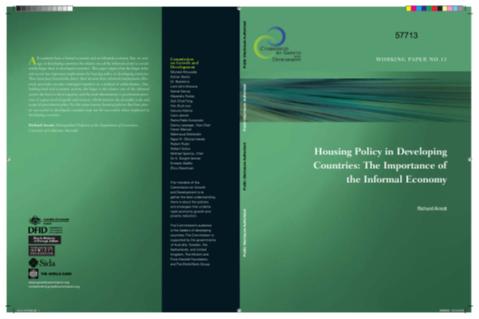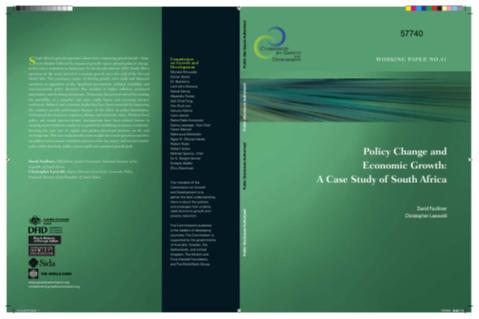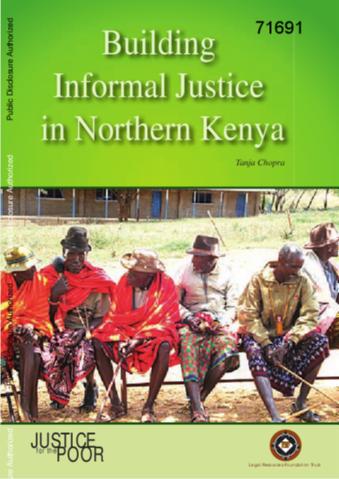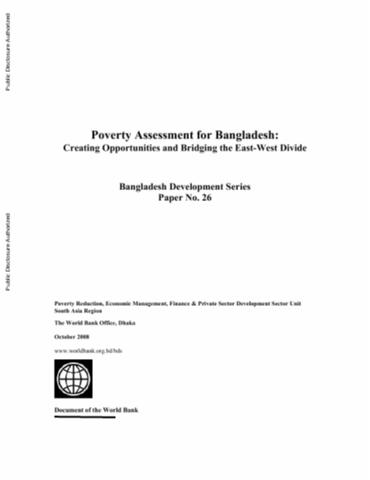The World Bank is a vital source of financial and technical assistance to developing countries around the world. We are not a bank in the ordinary sense but a unique partnership to reduce poverty and support development. The World Bank Group has two ambitious goals: End extreme poverty within a generation and boost shared prosperity.
- To end extreme poverty, the Bank's goal is to decrease the percentage of people living on less than $1.25 a day to no more than 3% by 2030.
- To promote shared prosperity, the goal is to promote income growth of the bottom 40% of the population in each country.
The World Bank Group comprises five institutions managed by their member countries.
The World Bank Group and Land: Working to protect the rights of existing land users and to help secure benefits for smallholder farmers
The World Bank (IBRD and IDA) interacts primarily with governments to increase agricultural productivity, strengthen land tenure policies and improve land governance. More than 90% of the World Bank’s agriculture portfolio focuses on the productivity and access to markets by small holder farmers. Ten percent of our projects focus on the governance of land tenure.
Similarly, investments by the International Finance Corporation (IFC), the World Bank Group’s private sector arm, including those in larger scale enterprises, overwhelmingly support smallholder farmers through improved access to finance, inputs and markets, and as direct suppliers. IFC invests in environmentally and socially sustainable private enterprises in all parts of the value chain (inputs such as irrigation and fertilizers, primary production, processing, transport and storage, traders, and risk management facilities including weather/crop insurance, warehouse financing, etc
For more information, visit the World Bank Group and land and food security (https://www.worldbank.org/en/topic/agriculture/brief/land-and-food-security1
Resources
Displaying 4761 - 4765 of 4907Housing Policy in Developing Countries
All countries have a formal economy and an informal economy. But, on average, in developing countries the relative size of the informal sector is considerably larger than in developed countries. This paper argues that this has important implications for housing policy in developing countries. That most poor households derive their income from informal employment effectively precludes income-contingent transfers as a method of redistribution.
Policy Change and Economic Growth
South Africa's growth experience provides an example of how contrasting growth trends long-term decline followed by improved growth pivot around political change, in this case a transition to democracy. In the decade prior to 1994, South Africa experienced the worst period of economic growth since the end of the Second World War, with growth variable and declining.
Building Informal Justice in Northern Kenya
This report analyzes the conflict resolution mechanisms among pastoralist societies in northern Kenya who have a long history of conflict but were by and large not involved in recent hostilities. It is based on qualitative research data that was collected during field visits between July and November 2007 in three arid lands districts in Northern Kenya - Isiolo, Baringo/East Pokot and Garissa. Research areas were selected to gain insight into conflict and legal dynamics among a variety of ethnic groups and in differing ecological and political environments.
Building Informal Justice in Northern Kenya
This report analyzes the conflict resolution mechanisms among pastoralist societies in northern Kenya who have a long history of conflict but were by and large not involved in recent hostilities. It is based on qualitative research data that was collected during field visits between July and November 2007 in three arid lands districts in Northern Kenya - Isiolo, Baringo/East Pokot and Garissa. Research areas were selected to gain insight into conflict and legal dynamics among a variety of ethnic groups and in differing ecological and political environments.
Poverty Assessment for Bangladesh
Bangladesh has made good progress in reducing poverty over the past decade despite the series of external shocks which have routinely affected the country. Poverty fell from 49 percent in 2000 to 40 percent in 2005, propelled by respectable economic growth and relatively stable inequality. These statistics are reflected in tangible improvements in poor people's lives, such as a sharp reduction in those living under flimsy straw roofs in rural areas.









